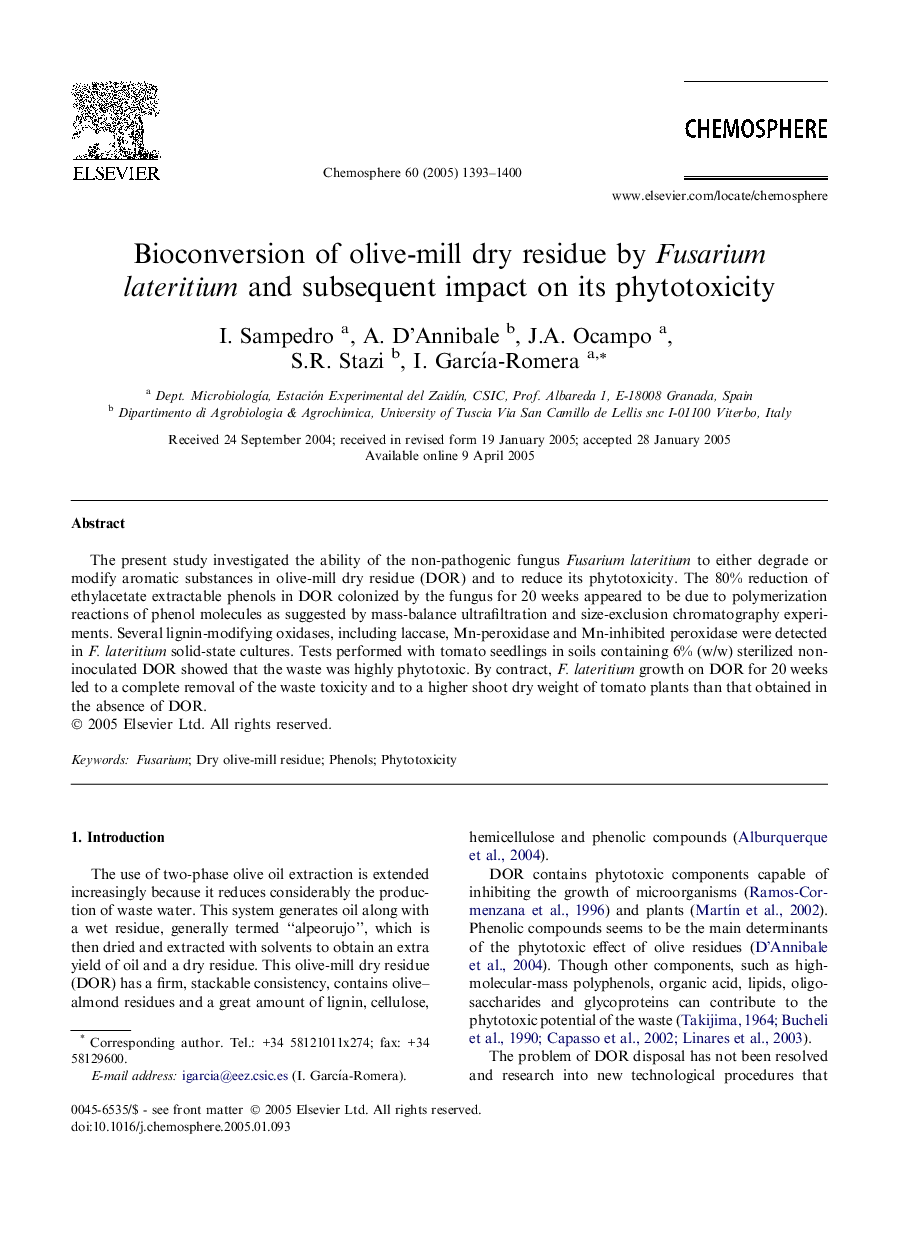| Article ID | Journal | Published Year | Pages | File Type |
|---|---|---|---|---|
| 9451231 | Chemosphere | 2005 | 8 Pages |
Abstract
The present study investigated the ability of the non-pathogenic fungus Fusarium lateritium to either degrade or modify aromatic substances in olive-mill dry residue (DOR) and to reduce its phytotoxicity. The 80% reduction of ethylacetate extractable phenols in DOR colonized by the fungus for 20 weeks appeared to be due to polymerization reactions of phenol molecules as suggested by mass-balance ultrafiltration and size-exclusion chromatography experiments. Several lignin-modifying oxidases, including laccase, Mn-peroxidase and Mn-inhibited peroxidase were detected in F. lateritium solid-state cultures. Tests performed with tomato seedlings in soils containing 6% (w/w) sterilized non-inoculated DOR showed that the waste was highly phytotoxic. By contract, F. lateritium growth on DOR for 20 weeks led to a complete removal of the waste toxicity and to a higher shoot dry weight of tomato plants than that obtained in the absence of DOR.
Keywords
Related Topics
Life Sciences
Environmental Science
Environmental Chemistry
Authors
I. Sampedro, A. D'Annibale, J.A. Ocampo, S.R. Stazi, I. GarcÃa-Romera,
